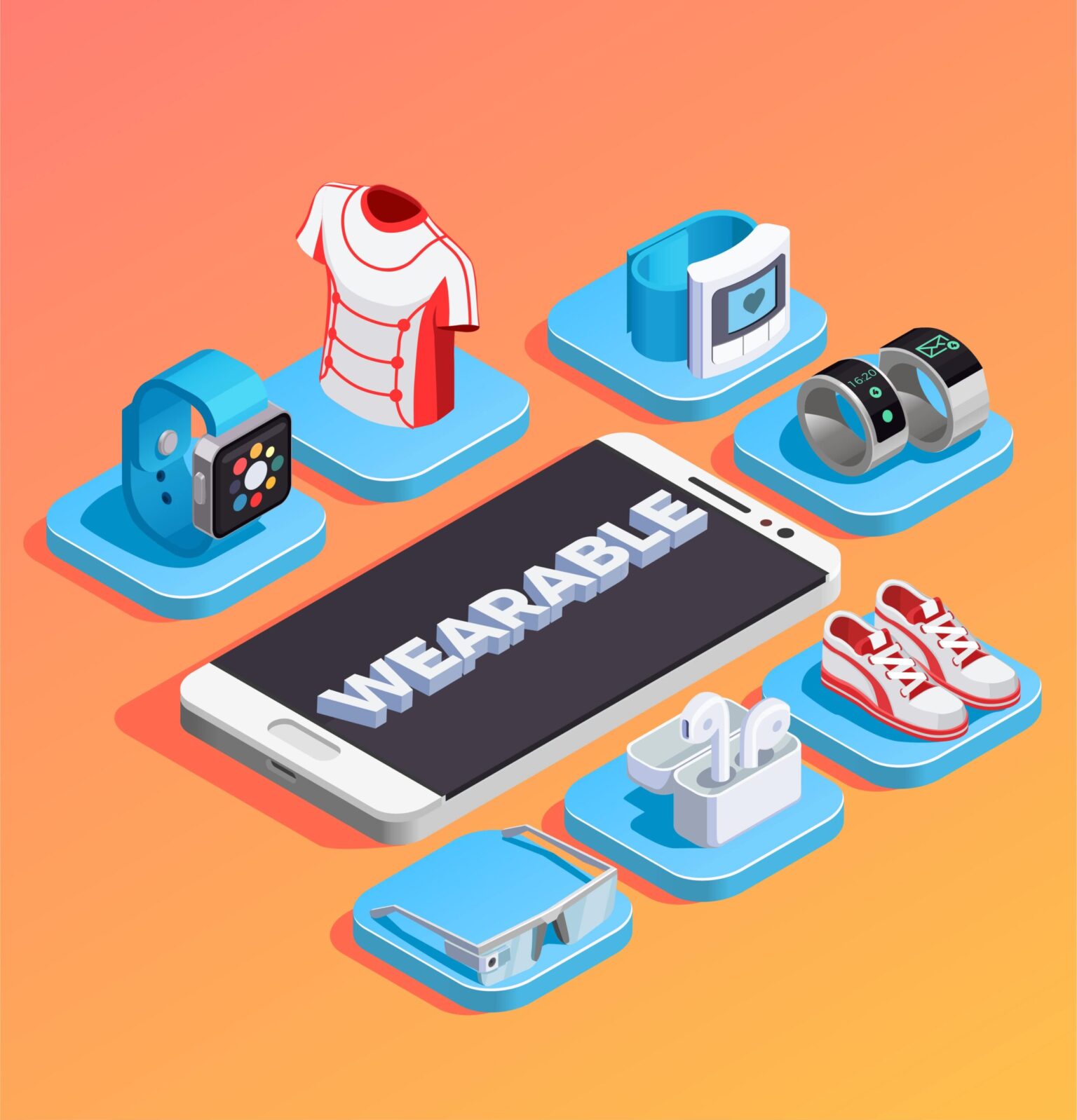Wearable devices play a significant role in telemedicine by enabling the remote monitoring of patients’ health from anywhere. These devices, typically worn on the body or incorporated into clothing, collect physiological data and transmit it to healthcare providers for analysis and decision-making. Here are some key aspects of wearable devices in telemedicine:
Remote Health Monitoring: Wearable devices continuously track and monitor various health parameters such as heart rate, blood pressure, oxygen saturation, sleep patterns, activity levels, and more. This real-time data can be transmitted wirelessly to healthcare providers, allowing them to monitor patients’ health remotely and identify any deviations or concerning trends. Remote health monitoring with wearable devices enables early detection of health issues and timely interventions, particularly for patients with chronic conditions or those recovering from surgeries or illnesses.
Chronic Disease Management: Wearable devices are particularly beneficial for managing chronic diseases such as diabetes, hypertension, and cardiovascular conditions. Patients can use wearable devices to track their blood glucose levels, blood pressure, or heart rate, and share this information with healthcare providers remotely. Continuous monitoring of these parameters helps in better managing chronic conditions, adjusting medication dosages, and making informed treatment decisions without the need for frequent in-person visits.
Personalized Care and Health Insights: Wearable devices provide individuals with personalized health insights and encourage proactive management of their health. The data collected by these devices can help users understand their activity levels, sleep patterns, stress levels, and overall well-being. This information empowers individuals to make lifestyle changes, set health goals, and track their progress. Healthcare providers can also use this data to gain a holistic view of patients’ health, identify patterns, and provide personalized recommendations for better health outcomes.
Medication Adherence: Wearable devices can remind patients to take their medications at the prescribed times, helping improve medication adherence. These devices can send alerts or notifications to patients’ smartphones or smartwatches, ensuring they adhere to their medication schedules. Enhanced medication adherence, facilitated by wearable devices, can lead to improved treatment outcomes and reduced healthcare costs.
Teleconsultations and Virtual Visits: Wearable devices can facilitate teleconsultations and virtual visits by enabling healthcare providers to remotely assess patients’ health status. During teleconsultations, healthcare providers can review the data collected by wearable devices, discuss any concerns, and provide necessary guidance or adjustments to treatment plans. This remote monitoring reduces the need for in-person visits, particularly for routine check-ups, follow-ups, or minor health concerns, thereby improving convenience and reducing healthcare costs.
Early Warning Systems and Predictive Analytics: Wearable devices, coupled with advanced analytics and machine learning algorithms, can serve as early warning systems for detecting health issues. By continuously monitoring vital signs and other relevant parameters, wearable devices can alert healthcare providers of potential health risks or deviations from normal patterns. This enables proactive interventions and early treatment, potentially preventing complications or hospitalizations.
Health and Fitness Tracking: Wearable devices are widely used for general health and fitness tracking. They can monitor steps taken, calories burned, sleep quality, and exercise routines. This data helps individuals stay motivated, set fitness goals, and maintain an active and healthy lifestyle. In some cases, individuals may choose to share this data with their healthcare providers to get a more comprehensive view of their overall health and well-being.
Wearable devices provide a convenient and efficient means of monitoring health parameters and facilitating remote healthcare. They empower individuals to take an active role in managing their health while enabling healthcare providers to remotely monitor patients, provide personalized care, and make informed decisions. However, it is important to ensure the accuracy, reliability, and security of wearable devices and the associated data to maintain patient privacy and trust.



